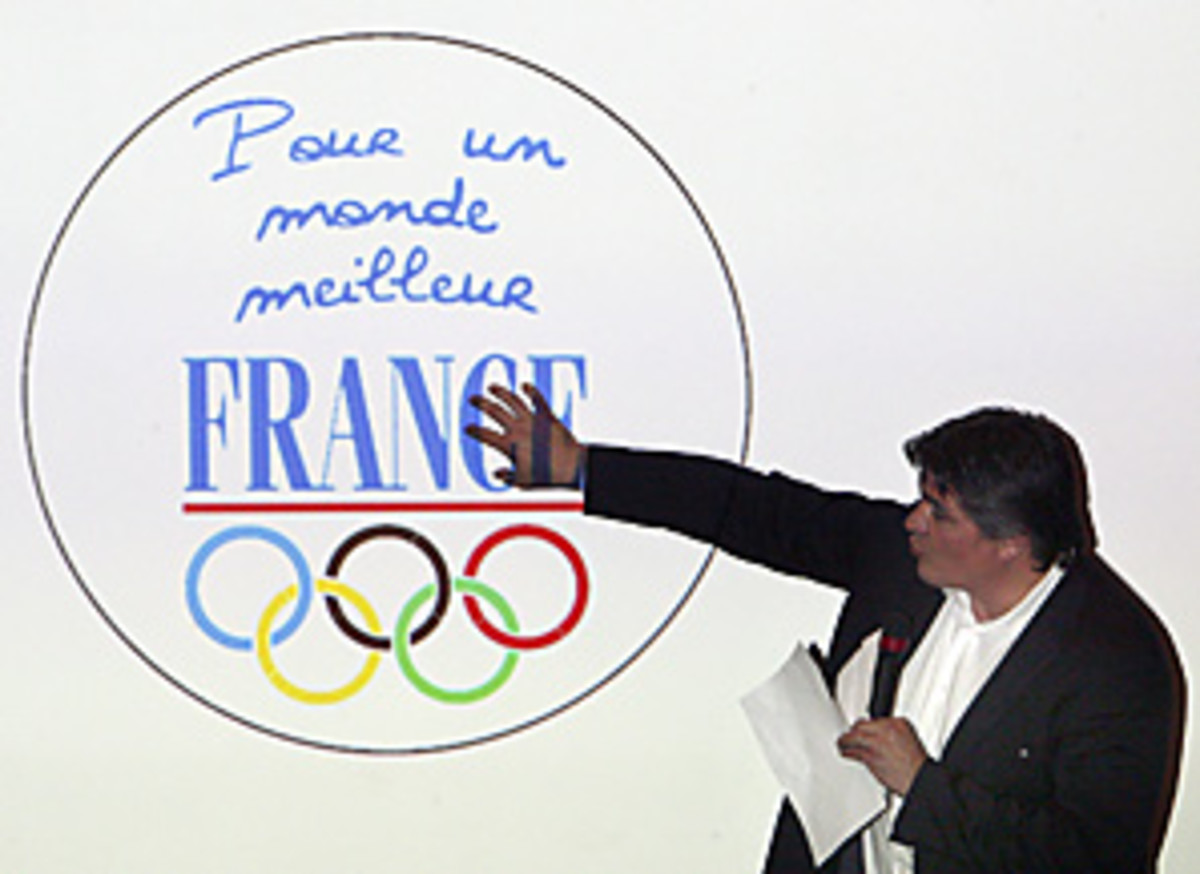Anti-Olympic spirit taints this year's Games


So much for fellowship.
So much for the symbolism of the five connected rings.
So much for the grand Olympic spirit that once celebrated our shared humanity.
As Beijing's Olympic torch winds its way from protest to protest, as politicians line up to champion boycotts,the athletes are hearing: "shut up, sit down and forget the whole fellowship thing."
Your sisters in Darfur? Shush. Your brothers in Tibet? Shush. Your hosts in China, whose own mouths are stifled by their Communist leaders? Shut up.
It's funny, the International Olympic Committee fancied itself on answering some higher calling when it first awarded the Games to China. Beijing's bid book talked about building infrastructure and forging sustainable legacies, luring the Committee members with the grand vision of boosting a country's self-esteem. IOC vice president Thomas Bach admitted this much back in 2001, claiming that while many oppose having China as host, "Others will feel awarding the Games may help to liberalize a country."
Article 51 of the Olympic charter states "no kind of demonstration or political, religious or racial propaganda is permitted in any Olympic sites, venues or other areas." But, apparently, that's not restrictive enough to appease the Chinese. And so the British Olympic Association slid a contract in front of its athletes, prohibiting them from so much as commenting "on any politically sensitive issues." So did Belgium. And New Zealand. Even Canadian Olympic Committee president Dick Pound forcefully told his athletes last week, "If it is so tough for you that you can't bear not to say anything, then stay at home."
The athletes have even tried to speak their mind on the political issues tainting the event. But virtually the instant French athletes proposed to don badges reading, "Liberte, egalite, fraternite" or "For a Better World," the French Olympic Committee nixed the idea and IOC head Jacques Rogge announced that "political factors" need to be kept away from the Games.
The one-world, one-people humanitarians amongst us say Olympic athletes are in a unique position. That these Games are their platform, their stage, and that part of their duty as Olympians forwarding Olympic values is to shine a light where the Chinese themselves can't. The isolationist folks amongst us say these battles are the Chinese's to wage, not some foreign athlete's fight to pick, and nobody else's business. That's good and fine and athletes around the world have already slotted themselves into one of the two camps. But they've done so by their own choosing.
Forty years ago this summer, Tommie Smith had the freedom to make a choice and decided that the poverty of African-Americans in America, and the assassination of the leaders who'd fought that poverty, demanded his direct attention. It was Smith and John Carlos' shoeless, black-gloved medal acceptance that prompted Article 51, and while Smith won't so much as suggest this year's athletes should similarly champion a cause ("They must be captains of their own ship," he said), he does admit having that choice to make ultimately made him a truer Olympian than his world record race.
Smith and Carlos split a pair of gloves, silver medalist Peter Norman overheard their pre-ceremony discussion and asked, "What can I do?" and nearly four decades after Norman donned an Olympic Project for Human Rights button on the stand, Smith and Carlos served as pallbearers for the quiet, white Australian gym teacher.
"That was the Olympic fellowship," Smith said, sighing this week as he waited for a plane to the Netherlands. "We came together as athletes, from all over the world, and were all reminded we are humans."
By enabling, and even assisting, the Chinese's muzzling of athletes, national Olympic committees are making a mockery of the rights accorded to free people in a free world, whether it be through the repression of athletes or the censoring of media.
It was Pierre de Coubertin, the founder of the IOC, who said, "The most important thing is not to win, but to take part." So let the athletes take part, to whatever extent they want. If it means celebrating a 400-meter win with a lap waving a native flag, as Australian Aborigine Cathy Freeman did in 2000, so be it. If it's wearing a green armband to bring attention to human rights issues in China, as French pole vaulters want to do, fine.
But this "shut up and play"? That's not OK. That's not the Olympics.
